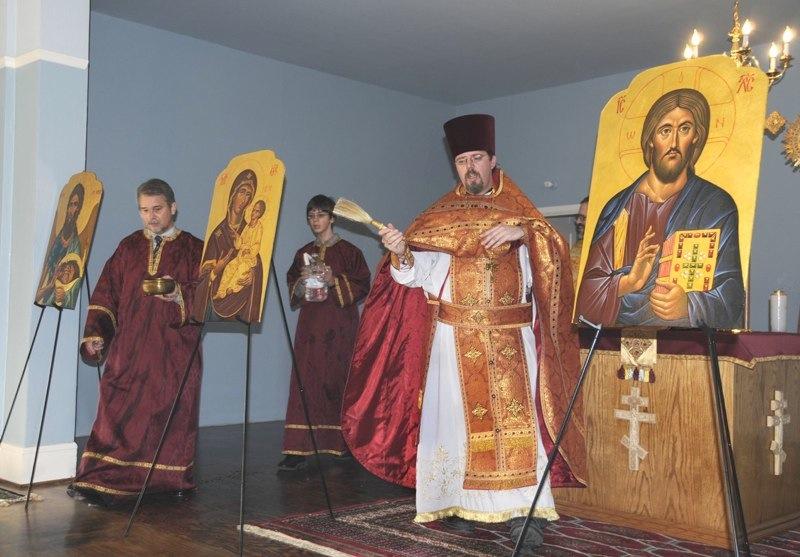The President of the United States, in the last few days, sent out what can only be described as an ugly screed against Rob Reiner, who along with his wife was murdered by their apparently mentally ill son. I refuse to give that message more attention than it deserves, but the part I want to focus on is the apparent motivation for this terrible take on things: President Trump's continued exercise of grievance politics. He said:
Well, I wasn't a fan of his at all. He was a deranged person as far as Trump is concerned.
He became like a deranged person. Trump derangement syndrome. So, I was not a fan of Rob Reiner at all in any way, shape or form. I thought he was very bad for our country.
Well, first of all -- so what? Are we really at a place in our country where if I just don't like someone, I can say anything, at any time, and have no remorse? We used to be able to give people space to grieve and mourn. Now, the President could not even bring himself to say one nice thing about a dead man, who was murdered viciously by his own child. If such a judgment were warranted, it would be bad enough to say it right after the man was murdered, while his family is grieving. The fact that Rob Reiner is not someone about whom nothing good could be said makes it worse.
Rob Reiner certainly was an activist, and he had a political worldview. His first major role on "All in the Family" should put everyone on notice of that (though most actors are capable of separating politics from their art, the politics were part and parcel of the art on "All in the Family"). More to the point, that is his right. Holding a differing viewpoint is a Constitutional right in America. It is among our most cherished civil liberties. We used to respect that, and respect those with whom we disagreed. I'd like to think those days aren't over, if only by observing the number of Republican and right-leaning personalities who heavily criticized the President over his remarks.
But Rob Reiner was also a beloved actor and director, and by all accounts a really good person. He directed "Stand by Me," "When Harry Met Sally," "A Few Good Men," and "The Princess Bride." He starred in the aforementioned "All in the Family," as well as having a notable (and brilliant) role in "Sleepless in Seattle."
I haven't even mentioned the utter brilliance of "This is Spinal Tap."
He also advocated for early childhood education, and fought to ensure access to preschool for California children. He was a father and a husband and a well respected member of his community who used his wealth and influence to try to do good. And even if we might disagree in the particulars about which of his activist work was good and which was not, we used to be able to honor the intentions while disagreeing with the policy.
He wasn't perfect -- nobody is. Mere disagreement, though, shouldn't lead us to pretend the man did no good. That he was no good. That he should be derided and mocked after his murder. The ugly soul that desires to denigrate a man after he has suffered the most horrific tragedy, and put his family through the indignity of having to see it, is a soul in need of healing.
Especially in light of the fact that the President has done this before (when John McCain died), what are we to do with this? The sad truth is, there isn't a lot we can do in the big scheme of things. We can vote differently, but that usually takes the form of "vote for the other side," and the other side has its own lack of grace (for example, when Charlie Kirk was murdered recently). Fortunately, I'm seeing a difference lately. Many, many prominent politicians and figures on the left expressed horror at Kirk's murder and disappointment with those who praised it. People lost their jobs for saying awful things about him, his wife, and his murder. Likewise, there is pushback against the President now, from his own side. That is good. We need more of it.
But in the long run, that does little good if it only exists moment to moment. We as Christians have to raise children who recoil at such misbehavior. We need to be people who speak out against it. And we need to form communities where it is unheard of and deeply frowned upon. We can't change the fact that the President won his election. We can refuse to be a part of the uglier side of his politics. We can choose to be better than that.
As Christians, we are under a holy obligation to do so. We are called to see Christ in our neighbor. If we cannot do that, then Christ will not see us. St. John Chrysostom said "If you do not find Christ in the beggar at the church door, neither will you find him in the chalice." How much more is this true of anyone, in any setting? If you can't find Christ in your political "enemies," how do you expect Him to find you?
Father Thomas Hopko, in a quote prominently featured on our parish's website, said:
"Jesus didn't say, 'love the image of God in that person.' He didn't say 'love Me in that person.' He said: 'Love that person, and you will be loving Me. Because I have identified with every human being on the face of the earth.'"
"Love that person, and you will be loving Me. Because I have identified with every human being on the face of the earth." Even Charlie Kirk. Even Rob Reiner. Even those whom we choose to despise over stupid superficial disagreements on how we should govern ourselves.
Not to put too fine a point on it, but even Osama Bin Laden.
If Jesus loves that person, and I cannot, then I cannot and do not love Jesus. That's a hard saying, but it really is that simple. So as the deacon proclaims at the Divine Liturgy, "let us love one another, that with one mind we may confess: Father, Son, and Holy Spirit, the Trinity One in essence, and undivided."
The Trinity is the model for all of mankind. One of the Trinity became man so He could be "of one essence" with us, and that we might be "undivided." Jesus said so in His High Priestly Prayer: "That they may be one, even as You and I are One."
Let us love one another, and put aside this petty childishness. We can do better.





















